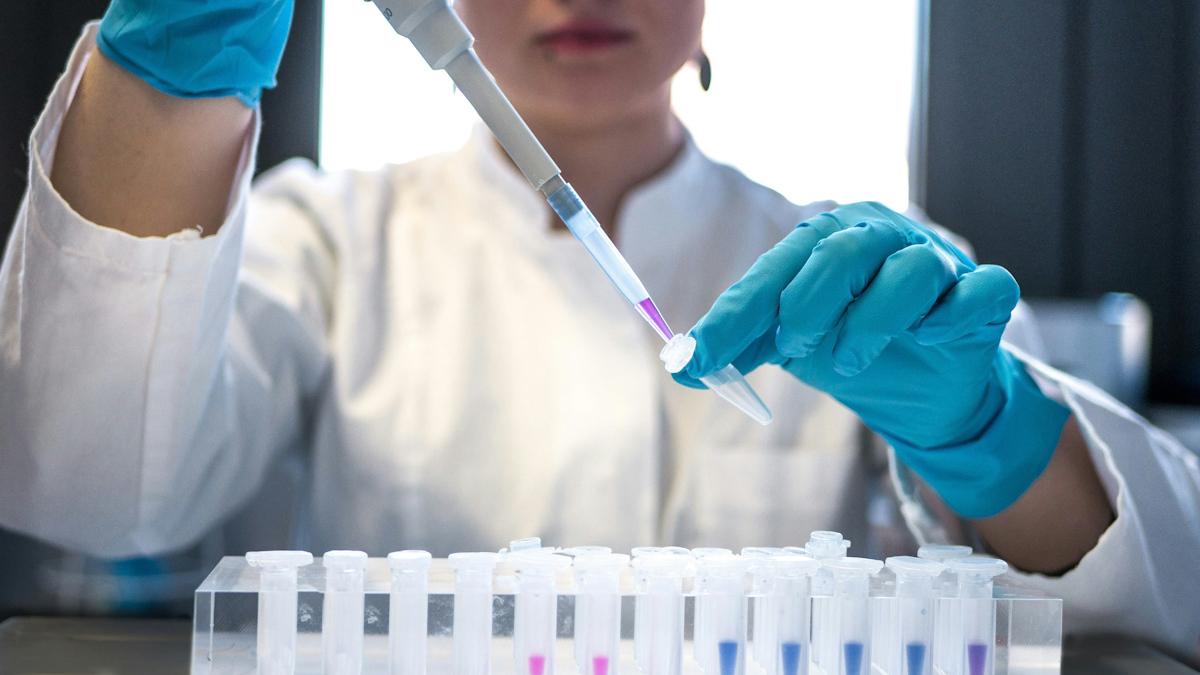COVID-19 is causing a renaissance in the UK biotech sector, we must ensure it lasts

Despite the UK’s world class research output and the many start-ups successfully spinning out from its academic institutions, in recent years UK biotech companies have struggled to access the capital they need to scale up and make their mark on the industry.
The COVID-19 pandemic has brought about a radical transformation, with investors now eager to fund companies involved in the fight against the virus. To ensure this renaissance endures, stakeholders such as the UK government and investors themselves must ensure the right regulatory and capital foundations are laid down.
A world-class science and start-up ecosystem
There is certainly no shortage of high-quality research or scientific output in the UK. The Biotechnology and Biological Sciences Research Council (BBSRC), part of UK Research and Innovation (UKRI), works with universities, research organisations, businesses, charities, and government to develop a supportive ecosystem. The UK is home to three of the top ten universities in the world for life sciences – Oxford, Cambridge and UCL – and UK research accounts for 12% of all life sciences academic citations globally, with the UK’s share of the top 1% of these standing at 18%. Other university cities such as Nottingham and Cardiff are also prominent.
Similarly, the UK also performs well at transferring academic knowledge into innovative start-ups. Some 42% of UK biotech companies have been spun‑out from academic institutions and, according to the latest report from Global University Venturing, the UK is home to five of the top ten universities in the world by value of capital raised via their spin-out start-ups.
Companies have struggled to access intermediate capital
However, companies in the sector have tended to stall prior to achieving scale. The common challenge is undertaking lengthy and capital-intensive phase II/III clinical trials. UK companies suffer from a limited pool of available capital and investors able to accept the risks and time required for commercialisation. Unable to move to the next stage of growth, many companies are often sold, willingly or unwillingly, before they have achieved their objectives.
Investment trends in the US influence investor appetite in the UK. Over the past five to ten years US investors have focused on technology and internet companies, and relatively little on new biotech or pharmaceutical companies. Regulatory pressures, lengthy drug development times, and the fact that drug prices have become politicised have raised risks and cut revenue projections, leading to the biotech sector falling out of fashion. In the UK, structural problems of the AIM market have compounded these problems by driving institutional investors away from relatively illiquid shares.
COVID-19 sparks change
The pandemic has changed the situation, highlighting the importance of having a vibrant and strong UK life sciences sector that can provide COVID-19 vaccines, therapies and tests to help society return to work and get the economy back on track.
Certainly, the supply of capital has dramatically increased. Large amounts of government funding became available, with Oxford University's Jenner Centre and its spin-out company, Vaccitech, for example, having received £65 million of public funding from the UK Government for development of its viral vector ChAdOx1 vaccine and to support its clinical trials.
The strategic importance of the biotech sector has attracted a flood of institutional, generalist and retail investors as they reallocate capital away from sectors such as retail, leisure and travel, which have suffered in the lockdown. As a result, the FTSE 350 Pharmaceuticals & Biotech index hit all-time highs in May.
Moreover, the range of companies benefiting from investor interest has not been limited to those developing a vaccine. To use the analogy of vaccine discovery being akin to striking gold during the Klondike Rush of the late nineteenth century, there are a raft of companies profiting from selling ‘picks and shovels’ – whether this is developing associated treatments and diagnostics, or manufacturing devices.
For example, if a company is carrying out clinical trials, then a clinical research organisation is needed to run them. If one is recruiting patients, then data management and other ancillary services are required. Vaccine trials in Oxford may make the headlines, but in the background are the people and companies providing the hardware and laboratories. All this has combined to inspire a renaissance in the sector.
Two key trends underpin the sector’s resurgence
Two important trends have also emerged during this sector resurgence. The first is that the development of vaccines is utilising cutting edge technologies.
Conventional vaccines introduce an inactivated sample of a disease to patients with the aim of stimulating an immune response. Today researchers are attaching only a portion of the DNA or mRNA of the virus to a harmless molecule. This precision has significant advantages in efficacy and production.
Because they are relatively new, these techniques have not yet yielded licensed products for human use. Therefore, a successful COVID-19 vaccine developed in this manner would represent a huge leap forward for the industry and demonstrate biotech’s ability to solve some of society’s biggest problems.
Another trend is a tremendous level of repurposing of existing IP and production capacity – often from areas that have been struggling for years – towards COVID-19 related causes. Scancell Holdings, for example, is currently producing a COVID-19 vaccine, but is doing so by repurposing expertise gained from developing a vaccine against melanoma.
Indeed, many companies that have found they can apply IP and business capacity to fighting the virus have seen their share prices rocket – UK small-cap Synairgen, for instance, saw its shares soar more than 1000% between the start of the year and mid-April as investors piled in on its plans to develop a potential treatment for coronavirus.
Nevertheless, while some valuations in the US might have edged too high, in the UK that certainly is not yet the case. Indeed, we are currently seeing a trend of US institutional investors coming in to buy what they see as undervalued UK biotech companies.
Paving the way for lasting change
So, what needs to happen to ensure the recent resurgence of the UK biotech sector does not recede once the pandemic is over? One approach would be to continue to provide government funding to underpin private investment in the sector. A more enlightened approach would be to address investors’ underlying concerns by, for example, reviewing the formats of clinical trials and the associated regulatory approval process, which were designed decades ago. If these discourage investment in the sector, are they still fit for purpose?
If we get it right, the prize is great. The outcome could be a UK that is resilient to future threats to public health, a world-leader in supporting the development of new life-changing medical treatments, diagnostics and devices, and a country that is building an innovation-led economy to create future prosperity.
About the author
Andrew Boyle is CEO of LGB & Co.












